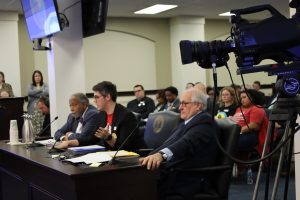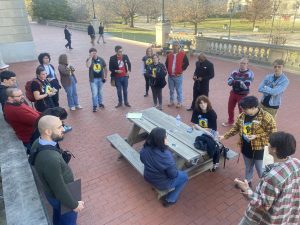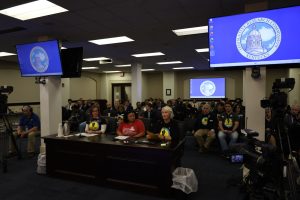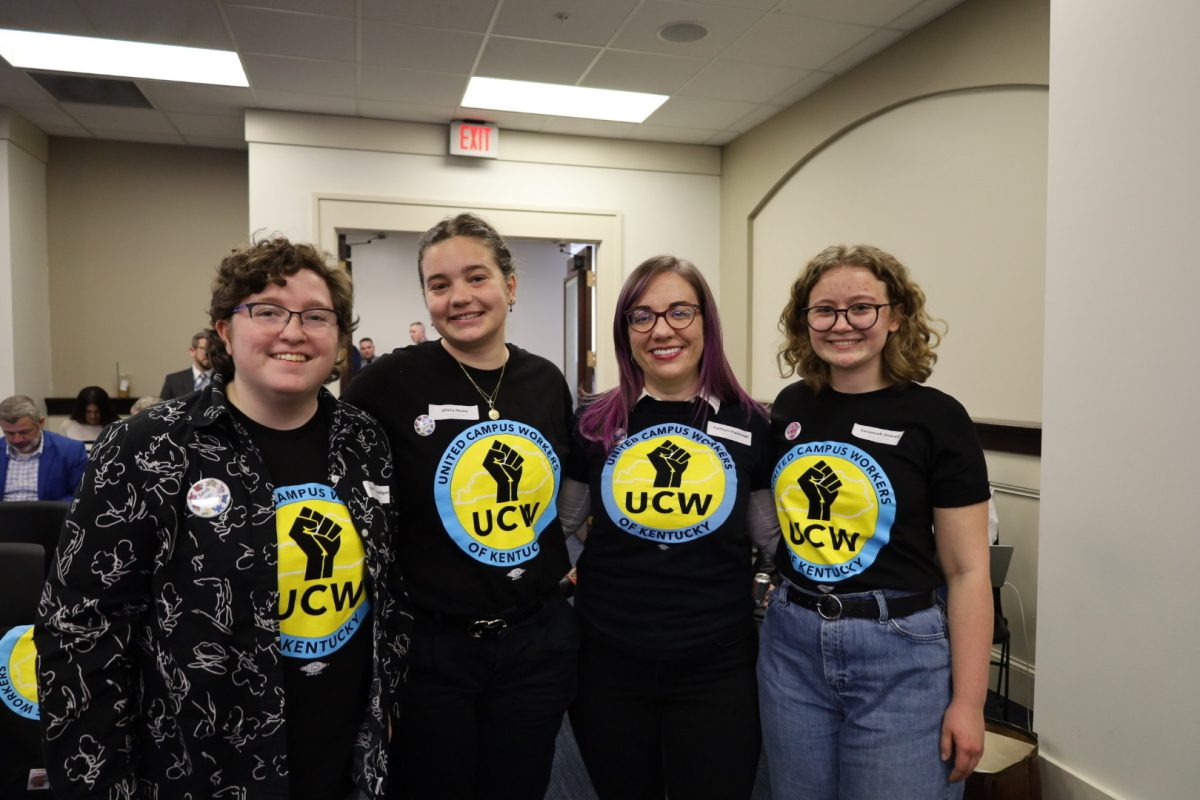Murray State students visited the state capitol earlier this month to continue voicing their opposition to anti-Diversity, Equity and Inclusion legislation.
In February, students held a DEI rally on campus to spread information and gather those interested in traveling with United Campus Workers of Kentucky to Frankfort, where they would continue their protest at the Senate Education Committee meeting in early March.
During this meeting, students and faculty voiced their concerns about House Bill 4 and also presented amendments to House Bill 424—a bill that would require an evaluation of university employees every four years. Faculty who do not meet the bill’s unspecified standards could be subject to removal from their positions.
The amendments to HB 424 were offered by Sen. Gerald Neal. Neal’s proposal was to add a line to the bill stating that the measures used to measure performance must directly relate to the responsibilities outlined in the employee contract.
Ray Horton, associate professor and UCW member, traveled to Frankfort with students to support the amendments.

“In one of the most high-stakes pop quizzes I’ve ever been assigned, Senator Neal invited me to help him present these proposals to the committee,” Horton said. “He cautioned me that the committee was likely to reject the proposed substitutions, and he was right, but he reassured me that sometimes you can still make a positive difference by making your case publicly even if you are fairly sure you aren’t going to win. That’s a lesson I will remember for a long time—one that applies to much more than politics.”
Melanie McCallon Seib, organizational communication instructor, was involved in drafting amendments, contacting legislators and collaborating with other professionals across the state in an effort to make their voices heard at the meeting. Like Horton, McCallon Seib is also a part of the Kentuckians for Higher Education.
“I have been part of a statewide coalition of Kentuckians for Higher Education, which includes several groups interested in making sure our institutions of higher learning continue to provide spaces of belonging to all students and that our curriculum continues to honor the history of exclusion without leaving room for racist and exclusionary classrooms,” McCallon Seib said.
Sid Richey, junior English and philosophy major, was one of the students who traveled to Frankfort.

“I found out about UCW’s goal to add committee substitutions to those bills through Dr. Horton (in his capacity as a member of UCW) and (I) wanted to lend my support in any way I could,” Richey said. “My biggest motivation for joining is seeing how DEI policies contribute to the prosperity for so many people who would otherwise be forgotten and left behind by our systems and knowing that these programs provide real benefits for all of us in Kentucky. I don’t want to look back and know I could have done more.”
Another student present at the meeting was Faeble Ashfield, senior international studies major.
“I wish the people in charge of our legislature actually understood how the people of Kentucky will be affected. I think we accomplished our goal of showing that there are a lot of people that care, that we will show up, and that we are watching. At least 20 people signed up to speak against the anti-DEI bill, and many many more were there to support and be present. (I am one of the latter),” Ashfield said. “To my knowledge, there were no visitors there in support of the anti-DEI bill. I am hopeful for the future—I don’t know how long it will take, but I believe we will fix things.”

Despite the efforts of everyone involved in the protest of HB4 and the revisions of HB424, the bills still continued to move through the committees and the presented amendments were rejected. Gov. Andy Beshear vetoed both bills—both of which have been overridden by Kentucky lawmakers and enacted into law.
“In no uncertain terms, I’m incredibly disappointed by the passage of those bills through the committee and through the senate, but I am not at all disappointed by UCW’s efforts to protect vulnerable groups and the rights of workers in our state,” Richey said.





























































































